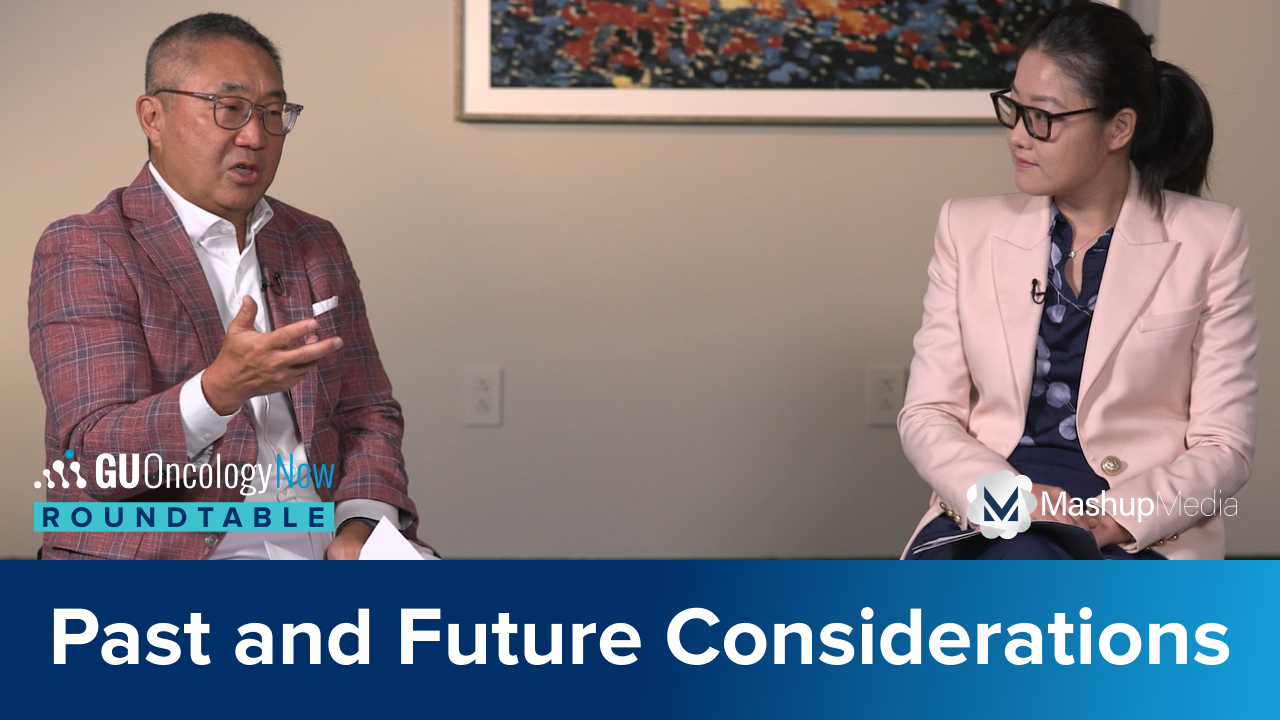NMIBC Roundtables
The panelists share their insights on risk assessment, and customized treatment strategies for high-risk NMIBC.
The panelists discuss the evolving landscape of bladder cancer treatments, focusing on balancing bladder-sparing therapies.
The panelists debate the potential of combining intravesical immunotherapy with immune checkpoint inhibitors.
The panelists share their perspectives on SunRISe-1 and the evolving role of TAR-200 in treating BCG-unresponsive UC.
Treatment Options for BCG-Unresponsive NMIBC: Balancing Efficacy, Logistics, and Patient Preferences
The second segment of this roundtable focuses on the evolving landscape of treatments for BCG-unresponsive bladder cancer.Part one of this roundtable highlights current practices, emerging therapies, and the future landscape of NMIBC care.
In the final segment of the roundtable, the panel debates the real-world integration of new therapies into everyday practice.
In part five of this NMIBC roundtable, the panelists discuss integrating new therapies such as TAR-200 into clinical practice
Part four of this roundtable series examines the SunRISe-1 trial results for high-risk NMIBC.
The panelists discuss advancements in NMIBC treatment in part three of this roundtable, including pembrolizumab and TAR-200.
Part two of this roundtable explores intravesical and systemic therapies, and the importance of accurate risk stratification.
The first part of this roundtable focuses on recent trial data, the role of TUR quality, and precision medicine for NMIBC.
The panelists consider patient expectations, considerations, and how they handle setting those expectations.
The panelists compare what they describe as apples and oranges.
The fourth part of this series focuses on the past and future landscape of clinical trials and logistic considerations.
Panelists discuss the data pipeline from clinical trials to the community setting in the third part of this series on NMIBC.
The second part of this roundtable series on NMIBC explores the relevant and current clinical trials.
The first part of six roundtable sessions on treatment advancements in NMIBC.
Advertisement



















 © 2025 Mashup Media, LLC, a Formedics Property. All Rights Reserved.
© 2025 Mashup Media, LLC, a Formedics Property. All Rights Reserved.